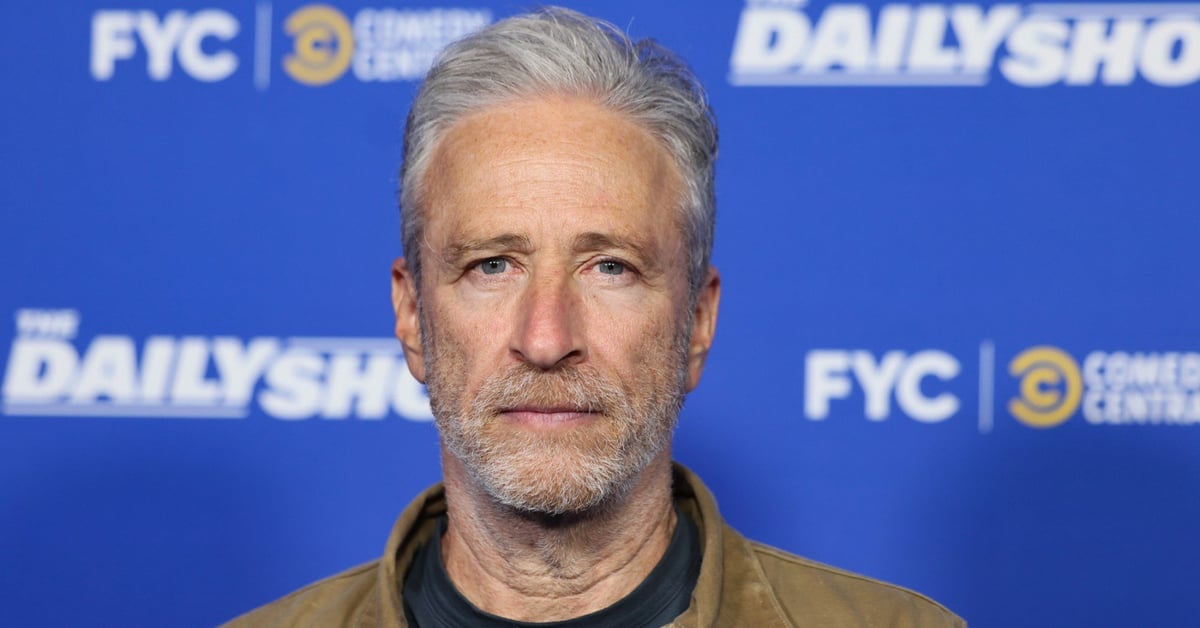
The future of “The Daily Show” is becoming uncertain as the media world watches the upcoming merger between Paramount, the parent company of CBS, and Skydance Media, which owns Comedy Central.
This concern comes shortly after CBS announced that “The Late Show with Stephen Colbert” will be ending next year. With Colbert’s departure confirmed, questions are now swirling about whether other popular shows like “The Daily Show,” hosted by Jon Stewart, might also face the axe.
Jon Stewart addressed these concerns on his podcast, “The Weekly Show.” When asked by a listener whether he was worried about the possibility of Skydance Media getting rid of “The Daily Show” after the merger with Paramount, Stewart responded with his typical humor and honesty.
He admitted that no one from the network had given him any notice about the show’s future or his position on it. “That’s a good question,” Stewart replied. “Unfortunately, we haven’t heard anything from them. They haven’t called me and said, ‘Don’t get too comfortable in that office, Stewart.’”
Stewart made light of the situation by joking about his own career experience with being let go. “But, let me tell you something, I’ve been kicked out of s***ier establishments than that. We’ll land on our feet,” he added with a laugh.
Despite his lighthearted tone, Stewart admitted that he genuinely does not know what the future holds for “The Daily Show.” He shared that he would like to believe the show still holds value, but acknowledged that Comedy Central itself may not have much life left in it. “I honestly don’t know,” he said.
“I think… I’d like to believe that — without The Daily Show, I don’t know. Comedy Central’s kind of like muzak at this point. I think we’re the only sort of, like, life that exists on a current basis, other than like South Park.”
Stewart’s comments came in the same week that CBS made a surprising announcement about “The Late Show with Stephen Colbert.” The network confirmed that Colbert’s show would end in May next year, bringing a close to a decade-long run that began when Colbert took over for David Letterman in 2015.

The decision to end the show was attributed to financial struggles, not the show’s content or performance.
Colbert himself addressed the news during his monologue on Monday night’s show. He confirmed that CBS would not be replacing him with a new host, and instead, the entire “Late Show” franchise would be retired after his final season.
“Next year will be our last season,” Colbert told his audience. “The network will be ending the Late Show in May… it’s the end of the Late Show on CBS. I’m not being replaced. This is all just going away.”
CBS executives also issued a joint statement about the decision. They praised Colbert’s time on the network, describing him as “irreplaceable” and announcing that the network had chosen to retire the entire franchise rather than find a new host.
“We consider Stephen Colbert irreplaceable and will retire ‘THE LATE SHOW’ franchise at that time,” the statement said. “We are proud that Stephen called CBS home. He and the broadcast will be remembered in the pantheon of greats that graced late night television.”
The executives were clear that the decision was a financial one, explaining that the network is facing a challenging landscape in late-night television. “This is purely a financial decision against a challenging backdrop in late night,” the statement continued. “It is not related in any way to the show’s performance, content or other matters happening at Paramount.”
Despite the praise for Colbert, the numbers show that late-night television is not drawing the same audiences it once did. According to Nielsen data, Colbert’s show currently averages around 2.4 million viewers per episode.
That’s nearly a 50 percent drop compared to the numbers David Letterman pulled in during the 2004-2005 season, when he averaged 4.1 million viewers per episode. The contrast becomes even starker when looking at Letterman’s debut episode back in 1993, which was watched by a staggering 23 million people.
:max_bytes(150000):strip_icc():focal(749x0:751x2)/barbara-walters-the-view-1-a158d783257a4d019b17a0197a82b5e7.jpg)
Further reports revealed that Colbert’s “Late Show” has been operating at a significant financial loss. According to Puck News, the show lost $40 million over the past year. This massive loss added more weight to CBS’s decision to bring the show to an end.
With Colbert’s exit on the horizon, concerns about other Comedy Central properties have grown. “The Daily Show,” which Stewart returned to host, now faces questions about its own future under the new ownership structure.
The looming Paramount and Skydance Media merger has already triggered speculation about restructuring and cost-cutting, particularly when it comes to legacy television brands that may no longer bring in the profits they once did.
Stewart’s comments reflect an awareness of the precarious position Comedy Central is in. The channel, once home to a wide variety of original and cutting-edge programming, is now best known for “The Daily Show” and “South Park.”
Stewart’s suggestion that Comedy Central has become like “muzak” – background music that’s easy to ignore – was a clear nod to the channel’s declining cultural relevance.
Still, Stewart tried to stay positive, noting that he has faced setbacks before and always found a way forward. His humor helped defuse some of the anxiety around the subject, but he did not hide his uncertainty. The lack of communication from network executives about the future of “The Daily Show” was evident in his remarks.
While Stewart might feel uncertain, “The Daily Show” still holds a significant place in political satire and late-night commentary. It has been a mainstay of Comedy Central since its debut in 1996, especially during Stewart’s original tenure from 1999 to 2015, when it became a cultural force. His return as host reignited some of that energy, but the broader challenges facing traditional television remain.
The Paramount and Skydance Media merger, which will combine the parent company of CBS with that of Comedy Central, has heightened worries that cost-cutting will lead to the cancellation of shows that are no longer seen as essential or profitable.

The financial pressures that led to Colbert’s departure are a warning sign for other shows, especially ones like “The Daily Show,” which relies on a specific audience segment that may not be as large as it once was.
Fans of “The Daily Show” and Stewart’s brand of political humor are left wondering what might come next. If the merger results in significant changes, Stewart could find himself looking for a new platform yet again.
His comments about having been “kicked out of s***ier establishments” suggest he is prepared for any outcome, whether that means staying on Comedy Central or moving to another network or streaming service.
For now, nothing is confirmed, and the future of “The Daily Show” remains in limbo. Much will depend on the priorities of the new parent company once the merger is finalized, as well as the ongoing shifts in how audiences consume media.
Traditional TV is facing competition from streaming platforms, social media, and digital content creators, all of which pull viewers away from conventional networks.
In the meantime, Stewart continues hosting and delivering his trademark satire, aware that the media landscape is changing rapidly around him. Whether “The Daily Show” will continue to have a place on Comedy Central in this new era is an open question, but Stewart’s readiness to adapt ensures that, wherever he lands, his voice will likely continue to resonate with audiences who appreciate his wit and insight.



